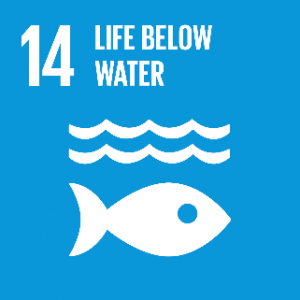When did World Oceans day first begin?
In 1992, at the United Nations Conference on Environment and Development (UNCED), in Rio de Janeiro, it was declared that World Oceans day was to be celebrated every year on the 8th of June.
Why do we celebrate World Oceans Day?
World Oceans Day unites the world to honour the 70% of the world’s surface that connects us. The ocean cares for humankind in more ways than most could ever imagine, it absorbs 30% of the carbon dioxide we produce and therefore buffers the effects of global warming.
Over 3 billion people are dependent on the coastal and marine biodiversity, with almost 200,000 identified species. Furthermore, the Ocean offers a picturesque serenity like no other, therefore it is vital we do everything in our power to protect our oceans to improve the lives of future generations.
How does the ocean benefit us?
The ocean plays a significant role in strengthening our health and wellbeing.
- Transportation: We rely on the ocean for transportation, whether this be for travel purposes or shipping produce.
- Weather and Climate: The ocean regulates the climate and weather patterns by transporting heat to the poles from the equator
- Recreation: The ocean gives us the recreational opportunities for hobbies such as fishing, scuba diving and sailing.
- Economic benefits:There are many businesses are dependant on the sea, e.g. the fishing industry and maritime transport
- Food: The food industry is also very reliant on the ocean as well as providing us with the water we drink everyday.
- Health: Ingredients from the ocean are found in medicine to combat cancer, Alzheimer’s disease, arthritis and heart disease.
How can you celebrate World Oceans day and help protect our oceans?
There are a number of pledges you can make for World Oceans Day, which include ways to stop plastic marine debris, stop ocean acidification by reducing carbon emissions, stop pollution of the Ocean by contaminants and to stop the depletion of fish stocks. There have now been 138 pledges made to protect our oceans. We’ve made our pledge, will you be next? Click here to make your pledge
What effect has World Oceans Day had?
World Oceans Day allows us to understand how our behaviour affects the oceans, it encourages simple changes in our lifestyles so that we can contribute to the restoration and protection of our shared ocean biodiversity. An example of this is reducing use of single use plastics. This year there have been 205 online events, raising awareness through innovative, creative and educational means. Furthermore, this year the ocean has helped counteract COVID-19 pandemic using organisms in the extreme depths of the ocean to detect the presence of COVID-19, enabling rapid testing. The ocean has always offered positive impacts on human health and yet we continue to pollute our oceans with waste, specifically plastic waste. Plastic waste takes a long time to break down meaning rapid build-up will result in drastic consequences, unless we make urgent change.
“By about 2050, scientists predict the combined weight of plastic in the ocean will be larger than all the fish.”
An alarming 40% of marine mammals are affected by consuming plastic waste, it is reported that 100,000 marine mammals die globally every year. It is estimated that 90% of the coral reef will die by 2050. In the last 30 years, 50% has already been lost, but it is not too late.

Each year world Oceans day has a theme. 2020’s theme was innovation for a sustainable ocean. In addition, Goal 14 of the 17 UN Sustainability Development Goals is ‘life below water’.
Both focus on a sustainable future through careful management of the ocean as a global system.
What can we do to reduce acidification of the ocean and marine pollution?
• Reuse and recycle plastic
• Stop using fossil fuels and use renewable energy
• Reduce your carbon footprint by consuming less electricity
• Buy locally to reduce CO2 and marine disturbance from transportation
• Conserve your water to prevent excessive heat released from the energy needed to filter/treat our water.
• Stop offshore drilling to prevent oil spills
There is a need for regulations to reduce acidification, diminish marine pollution and evade overfishing.
How can we offer you support?
As environmental consultants, we can help organisations manage and reduce their environmental impact by implementing an ISO 14001 environmental management system.
How we manage our environmental impact on land has a direct impact on the ocean. ISO 14001 is an international management standard and when UKAS accredited, proves to clients that organisations are responsible and mindful of their actions concerning the ocean’s health.
ISO 14001 can include measures such as carefully managing waste and by making intelligent choices. For example, favouring biodegradable packaging and reducing your organisation’s energy consumption will help protect the ocean and produce a financial saving.
Need a professional solution to reduce your organisation’s environmental impact? Click here


